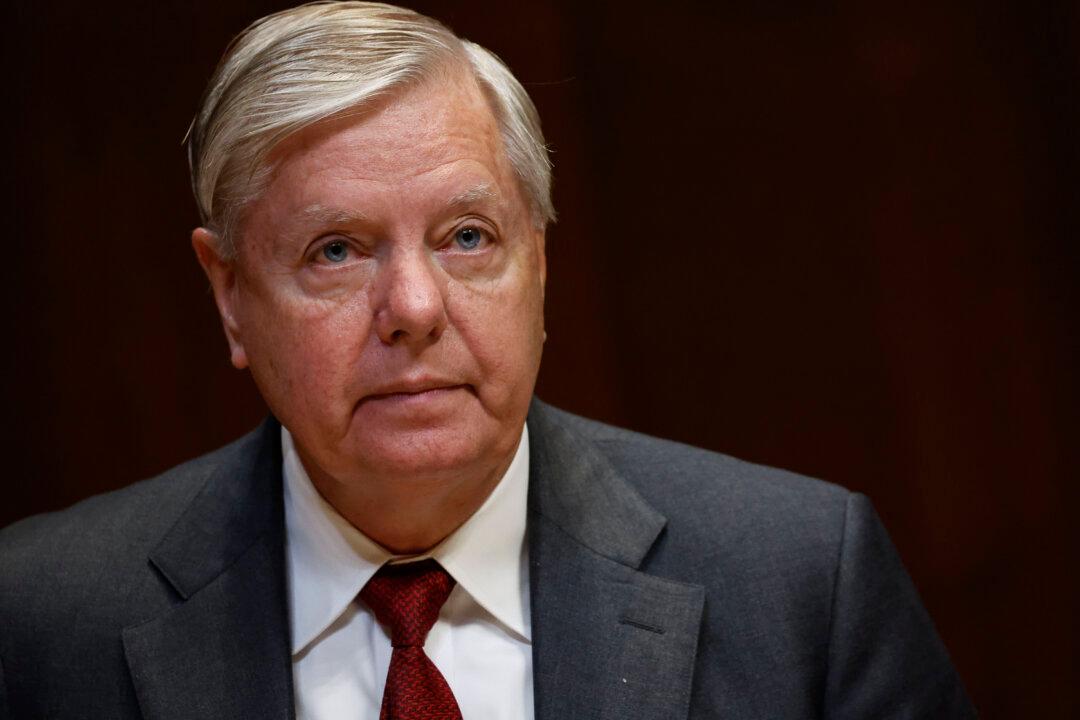The U.S. Supreme Court blocked on Oct. 24 a subpoena of Sen. Lindsey Graham (R-S.C.) for his testimony to an Atlanta-area grand jury that’s investigating possible illegal interference in the 2020 election.
Justice Clarence Thomas, a George H.W. Bush appointee, entered the order. He stayed the subpoena “pending further order of the undersigned or of the Court.”





